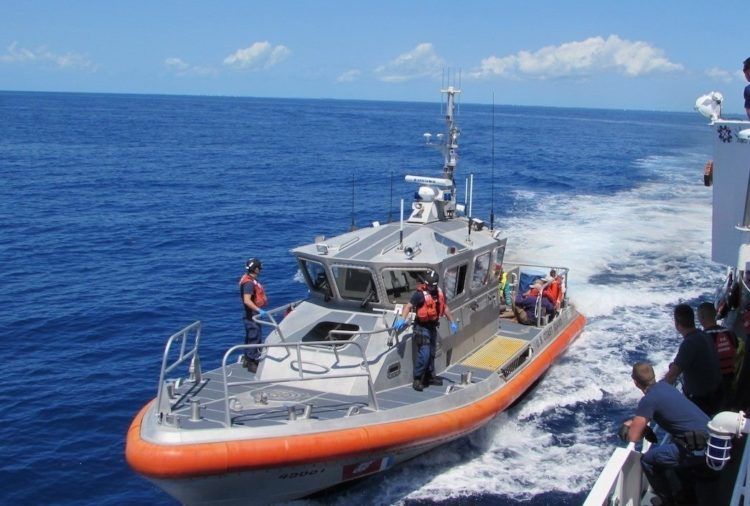The U.S. Coast Guard repatriated 59 Cuban rafters this Monday and Tuesday, the product of four interceptions in the Florida Keys, in the extreme south of the state, the institution reported.
A Coast Guard intervention that led to the custody of 29 Cubans, the largest amount, occurred on June 10 when agents rescued a precarious boat “in poor condition” 40 miles (64 kilometers) north of Havana.
One person was taken ashore to receive medical attention and the remaining 28 were repatriated this Monday in good health, the Coast Guard said in a news release.
#NEWS Two @USCG cutters repatriated 59 migrants to #Cuba, Mon & Tues, following 4 interdictions S of Florida Keys. Read full story>> https://t.co/Iy9z0YSIA3 #donottaketothesea pic.twitter.com/X9oLe1Fgao
— USCGSoutheast (@USCGSoutheast) June 15, 2021
Another precarious boat with 16 people on board was spotted the day earlier, on June 9, in Long Key, by a “good Samaritan” who immediately contacted the Coast Guard. The entire group was transferred to a cutter and repatriated to Cuba between this Monday and Tuesday.
On the same day, a Customs and Border Protection (CBP) plane informed the Coast Guard at the Islamorada naval station that a boat in poor condition with four people on board was heading north off Cayo Largo.
The boat was intercepted and the Cuban immigrants were repatriated this Monday.
And last Saturday authorities intercepted another rustic boat with 11 Cuban immigrants on board, 10 miles (16 kilometers) from Elliot Key, near Miami Beach. All of them were also repatriated this Tuesday.
“The U.S. Coast Guard and associated agencies actively patrol the Straits of Florida,” so “we strongly discourage attempts to illegally enter the United States by sea,” said Mario Gil, Coast Guard liaison officer at the United States embassy in Havana.
Acusan de tráfico de personas a cubano que asegura haber rescatado a ocho balseros
So far this fiscal year 2021, that is, since October 1, 2020, the Coast Guard has intercepted 465 Cubans at sea, a significant increase in detentions compared to the 49 intercepted in the entire fiscal year 2020.
According to figures provided by the US authorities, in fiscal year 2019 there were 313 Cuban immigrants intercepted and in 2018 the number reached 259, while in 2017 and 2016, the number of Cubans intercepted at sea was 1,468 and 5,396, respectively.
The doorway for Cubans without legal permits to enter the United States was open until January 12, 2017, when then-President Barack Obama withdrew immigration benefits by canceling the “wet feet/dry feet” policy by executive order.
Since then, Cubans who enter the United States illegally do not have a temporary residence permit and, if they request political asylum, they will have to request it under the same conditions as other immigrants.










